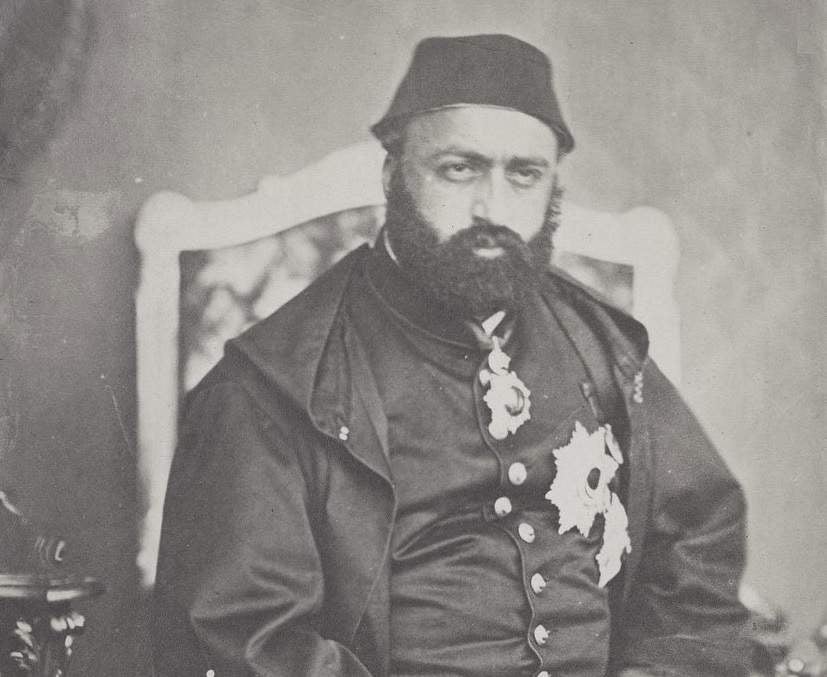
On the first anniversary of Theresa May’s premiership, one historic parallel tells us something about the unfolding landscape, writes Alec Marsh
After her shredding at the general election in June, Theresa May’s former cabinet colleague George Osborne pronounced her a ‘dead woman walking’. Speaking on Andrew Marr’s Sunday morning show, the former chancellor even grinned as he delivered the line.
But more than a month on since that eviscerating poll, it’s clear that Osborne’s expression doesn’t quite cut it. The prime minister is not quite on death row, as his choice term implies.
Rather, thanks to her co-dependence on a coterie of key rivals to remain in power – a dependence furthermore which rests largely on their mutual enmities as much as on any actual inherent support for her – Mrs May’s predicament instead resembles the ‘sick man of Europe’ or in her case, of Westminster.
That is to say that a year after she first got her hands on the keys to Number 10, the prime minister’s position in power has come to fit the expression was first ascribed to Turkey in the nineteenth century, (before being applied to the economic basket case of Britain in the 1970s). The Ottoman Empire still then controlled a vast swathe of territory, of course – from Bulgaria and Serbia in Europe all the way down to the tip of the Arabian peninsula in modern day Yemen in the south and up to Crimea on the Black Sea in the north – but this was more down to the strategic legacy of two centuries before, than to any enduring economic or military dynamism. The Sultans, and the empire, had run out of gas.
But what do you know? Despite having once been enemies of both France and Britain, both these emergent powers came to her rescue, notably supporting Turkey against their greater and more relevant foe, Imperial Russia, in order to prevent the implosion of Ottoman power and the ensuing vacuum.
Since June 8, Mrs May has become our very own Turkey; retaining her position through the power enjoyed by others – namely David Davis, the Brexit Secretary, Boris Johnson, the Foreign Secretary and Philip Hammond the Chancellor, rather than on her own merits, which have all too publicly been called into question. In this the fear of Imperial Russia has been replaced by the fear of Jeremy Corbyn’s resurgent Labour party, which Tory MPs seem to be terrified of meeting again at the polls.
The trouble is, that like it or not, Mrs May’s days are numbered, but just like any Turkey she’s not about to vote for an early Christmas. Rather, she appears to have decided to hold on for as long as possible to deliver a ‘good Brexit’. And well she might, but only if the other pieces of the jigsaw – ones which she doesn’t control – don’t change first.
Interestingly, if the Ottoman parallel teaches us anything, it’s that you should be careful about who you reach out to in a time of need. Despite its British affections – don’t forget that 100,000 British servicemen were killed in the Crimean War of the 1850s in support of the Sultan – in the years before the First World War, Constantinople began to pivot towards Berlin. Then, come 1914, they decided to throw their lot in with the Kaiser. Had they gone the other way, and sided with the Allies, things might have been very different for Turkey. Who knows, the Ottoman Empire might still exist. As it happened, it ended badly for the Turks and the Sultans – and not at the time of their choosing. Before they knew it they had a British battleship with 15-inch guns anchored 20 yards from the Sultan’s patio on the Bosporus. That’s when they knew their goose was cooked.
So, harsh though it might be to compare Turkey’s wartime pact with the Kaiser with Mrs May’s agreement with the DUP, the ‘sick man of Westminster’ may yet pay the price for this unloved accommodation, even if her government survives the Great Reform Bill’s passage through parliament, which is by no means a given. Either way, as Mrs May marks her anniversary in office, we all might do well to remember the Ottoman example. Power can be shared or even faked for a while, but in the end, once it’s left the building, you will surely follow it.
Alec Marsh is editor of Spear’s








